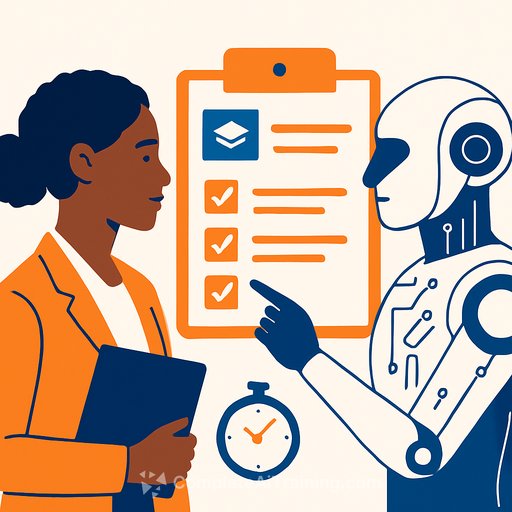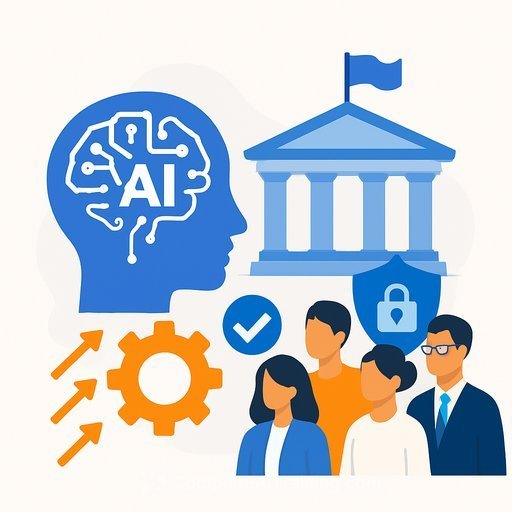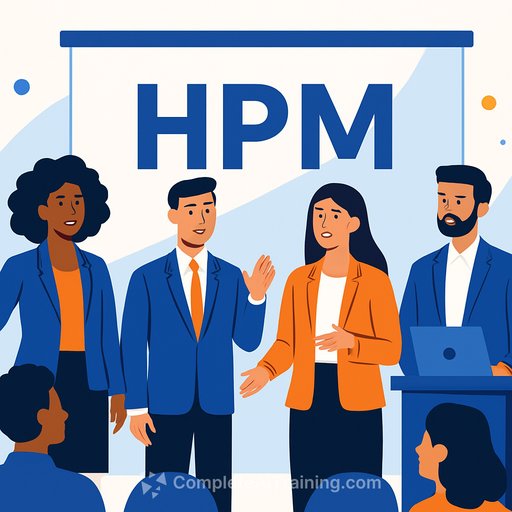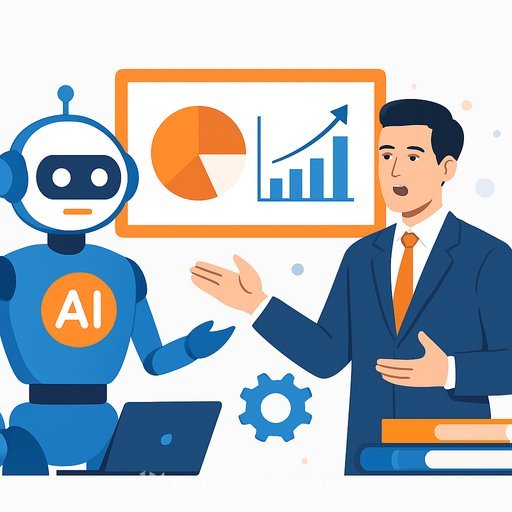Will AI Replace HR Jobs in Nigeria? What to Do in 2025
Will AI take HR jobs in Nigeria this year? Unlikely across the board. But your function will use AI, and soon. The leaders will be the ones who make it measurable, compliant, and human-centred.
- ≈90% of global HR functions will use AI in 2025; Nigeria is already adopting CV screening, payroll automation, and onboarding chatbots.
- Pilot a 90-day project, budget $600-$800 per HR FTE for upskilling, and require NDPA/NDPR-compliant human review on key decisions.
- IBM reports ≈40% faster HR query handling and ≈25% quicker onboarding with AI assistants.
What is AI in HR and how it's being used in Nigeria
Think of AI as a fast assistant that tackles repetitive, data-heavy tasks. In Nigeria, that means automated CV screening, 24/7 onboarding chatbots, basic payroll checks, and personalised learning paths.
Teams are using tools like ChatGPT, Zoho People, SeamlessHR, and platforms such as Manatal or HireVue for shortlisting, interview prep, and sentiment checks. Local products like Outnovately AI aim to connect JD writing, resume parsing, and competency-based evaluation into one workflow.
Practical move: start with one process, keep a human in the loop, and adapt outputs to local context and data quality. The payoff is hours saved and better focus on engagement, culture, and decisions that need judgement.
"AI cut down my JD drafting time from hours to minutes. That's where it really shows its value."
Why Nigerian HR is primed for AI adoption
Application volumes are massive, the skills gap is widening, and payroll/PAYE compliance burns time. These are perfect conditions for automation that sorts CVs, standardises checks, and speeds decisions.
Reports highlight recurring pain points across recruiting and employability, while Africa-focused payroll tools like Workpay address PAYE and pension workflows. The strategy is simple: fix one repeatable pain, prove value, then scale.
Which HR jobs and tasks in Nigeria are most at risk
Tasks with high volume and clear rules are first in line for automation. Your team should plan to move from doing the work to supervising the systems that do it.
- Data entry and bookkeeping
- Routine HR admin and recruiting (CV triage, scheduling, shortlisting)
- Payroll and bank teller-type calculations
- Frontline customer support and telemarketing (standard queries)
- Transcription and appointment scheduling
As ATS, chatbots, and automations take the grunt work, HR's edge becomes oversight, bias checks, and a stronger candidate and employee experience.
Which HR roles in Nigeria will evolve or stay human-centred
Roles rooted in judgement, empathy, and strategy will grow: talent architecture, L&D, employee experience, succession planning, senior HRBPs, and people analytics. AI can pre-screen and pattern-spot; people decide development paths, promotions, and performance actions.
Think of AI as a sieve that speeds selection. Humans do the shaping.
"We can't wish away the potentials of AI, neither can we do without the human angle, rather, we need to strike a balance."
Case studies and real examples impacting HR in Nigeria
- Lagos study on manufacturing: tangible and intangible big-data analytics resources correlate with stronger competitiveness.
- IBM HR assistant: ≈40% faster HR query handling; ≈25% reduction in onboarding time.
- Workpay (Africa-focused payroll): PAYE and pension workflows built for SMEs in the region.
What to copy: build analytics capability, pilot AI for predictable employee processes, and plug in domain-specific payroll/compliance solutions.
Legal, data protection and labour compliance in Nigeria
Make compliance the backbone. The NDPA and NDPR require privacy-by-design, DPIAs, and human intervention for any decision based solely on automated processing. No algorithm should be the final voice on hiring or discipline.
- Automated decisions: keep human review and a way to contest outcomes.
- DPIA and governance: document parameters, log algorithmic logic, and create audit trails.
- DCPMI registration and DPO: register if you meet thresholds; appoint a qualified DPO.
- Breach response: notify the NDPC within 72 hours if required; follow retention/minimisation rules.
- Sanctions: up to 2% of annual turnover or N10m for major processors, plus remedial orders.
Useful references: Nigeria Data Protection Commission and the OECD AI Policy Observatory.
Practical AI adoption roadmap for HR leaders in Nigeria
- Secure executive buy-in. Frame AI as a measurable productivity play with clear KPIs.
- Pick one pilot: CV triage, onboarding chatbot, or JD generation. Keep humans as final approvers.
- Run a DPIA, set bias-audit checks, and document policies (access, retention, security).
- Measure: time saved, shortlist quality, candidate experience, and error rates.
- Upskill your team and partner with local vendors for payroll and compliance nuances.
- Scale only after audited impact and proven governance.
What HR professionals in Nigeria should do to stay valuable
Treat AI as a multiplier for human skills. Build data fluency, change leadership, and ethical judgement.
- Budget $600-$800 per HR FTE for multi-year data literacy.
- Teach the five core skills: consulting, stakeholder influence, data interpretation, recommendations, and storytelling.
- Deliver a visible win: one pilot with a DPIA and a human-in-the-loop on any final decision.
You can browse practical AI course paths by role here: AI courses by job or see what's new: Latest AI courses.
Sample 90-day pilot plan and checklist for Nigerian HR teams
- Days 1-30 (Learn and observe): set up tools, baseline KPIs, map the workflow, assign owners, run a DPIA.
- Days 31-60 (Plan and pilot): launch with a small scope, weekly stand-ups, mid-pilot bias and compliance review.
- Days 61-90 (Execute and decide): compare KPIs to baseline, collect user feedback, complete an audit, decide go/no-go and scale plan.
- Suggested KPIs: time-to-shortlist, shortlist quality (interview pass-through rate), candidate experience (CSAT), and error rates.
- Mandatory step: human review before any hiring or disciplinary outcome influenced by AI.
Interpreting forecasts and numbers for Nigeria's labour market
Continental forecasts say ≈230 million African jobs will need some digital skill by 2030. Nigeria alone could need ≈28 million digitally skilled workers.
There's upside-Africa's digital economy could add ≈$180 billion by 2030-but infrastructure matters. Internet penetration is ≈55%, national electricity access ≈60.5% (≈27% rural), and households report under seven hours of supply on average.
Practical takeaway: treat forecasts as directional. Prioritise foundational digital skills, choose pilots where power and connectivity hold up, and measure readiness before scaling.
Bootcamps and short courses mentioned
- AI Essentials for Work - 15 weeks - Early bird $3,582
- Solo AI Tech Entrepreneur - 30 weeks - Early bird $4,776
- Cybersecurity Fundamentals - 15 weeks - Early bird $2,124
Quote to keep on your desk: "The future of work is not about man versus machine, it is about how we collaborate with technology to achieve more." - Satya Nadella
Conclusion and resources for Nigerian HR beginners
Start small. Measure fast. Keep a person in the loop. Pilot one use case-CV triage, onboarding chatbot, or JD generation-run a DPIA, and use simple KPIs to decide on scale.
Build skills in parallel. Pair role-based HR learning with practical AI practice. Explore role paths and fresh courses at Complete AI Training or browse the newest options here: Latest AI courses.
Frequently Asked Questions
Will AI replace HR jobs in Nigeria in 2025?
Wholesale replacement is unlikely. Expect broad adoption for screening, payroll, and onboarding. The work shifts from manual tasks to human-in-the-loop oversight, bias audits, and people strategy.
Which HR tasks are most at risk, and which stay human-centred?
At risk: data entry, routine payroll and PAYE, CV triage, scheduling, basic support via chatbots, transcription, and simple content/coding tasks. Human-centred: talent strategy, L&D, employee experience, senior HRBP roles, and people analytics-where judgement and influence matter.
What legal and data-protection steps come first?
Follow NDPA/NDPR: run a DPIA, log logic and build audit trails, keep human review for any automated decision, and apply privacy-enhancing techniques. Register as a DCPMI and appoint a DPO if you meet thresholds. Notify the NDPC within 72 hours of qualifying breaches. Fines can reach 2% of annual turnover or N10m for major processors, plus remedial orders.
What roadmap, pilot plan, and upskilling investment should we follow?
Phase adoption: secure buy-in, run a 30/60/90 pilot with clear KPIs, ensure human review, and audit results before scaling. Invest ~$600-$800 per HR FTE in data literacy and core influence skills. Consider short, practical courses that teach prompt design and workplace AI so HR becomes more strategic-not surplus.
Your membership also unlocks:






